Reviews
Nicholas Ray
USA, 1957
Credits
Review by Thomas Scalzo
Posted on 01 September 2008
Source 20th Century Fox DVD
Categories The Mystic: The Films of Nicholas Ray
Officially a remake of the factually dubious but supremely entertaining 1939 film Jesse James, Nicholas Ray’s take on the notorious outlaw differs wildly from its predecessor in terms of style, narrative structure, and level of historical accuracy. In place of the former film’s easily digestible tale of love and hate, vengeance and reconciliation, Ray attempts a complex character study, in which motivations and consequences are ambiguous. Unfortunately, burdened by both studio interference and the weighty promise of its title, The True Story of Jesse James never coalescences into a completely satisfying film.
One of the main problems is the awkward narrative structure. Rife with disorienting flashbacks and voiceovers (allegedly inserted by 20th Century Fox), the film disrupts us time and again as we attempt to immerse ourselves in the story. For example, after a strong opening sequence depicting the James Gang’s failed attempt to take a bank in Northfield, Minnesota (featuring a few moments of footage from the 1939 original), we’re whisked back in time to witness Jesse’s humiliation at the hands of hated Union soldiers, then pulled out of that scenario to visit with Jesse’s ailing mother as she waits on news of her boys. Additional time shifts follow, bouncing the viewer from Jesse and Frank holed up in a cave in hopes of evading the Northfield authorities, to the final days of the Civil War, to the burning of the James farm, to the convocation of the original James Gang and the first bank robbery.
On the positive side, the inclusion of such disparate and influential moments from Jesse’s past allows for a more subtle characterization of Jesse James the man, and a way for the audience to glean an understanding of the subtle and manifold reasons behind his transformation from farmer to killer. Unfortunately, this very dedication to complex characterization works against the film’s success as riveting entertainment.
In the 1939 original, for example, with Tyrone Power in the starring role, the soulless henchmen of the St. Louis Midland railroad company kill Jesse’s mother; Jesse’s subsequent holding up of the company’s trains seems an appropriate and justified response. He even goes so far as to declare flatly: “I hate the railroad. And when I hate something, I have to do something about it.” Admittedly, Jesse’s forays into illicit behavior eventually expand beyond robbing trains, and beyond mere revenge, but for the viewer, the reasons behind Jesse’s actions can be traced to a precise, and understandable, event. Thus are we able to lose ourselves in the adventure, fall under the spell of some terrific acting performances, and develop a sincere affection and concern for the ultimate fate of Jesse James.
In Ray’s film, and in actuality, Jesse’s mother isn’t killed in the farmhouse attack—the attack doesn’t occur until he is well established as an outlaw. By admirably including these historical details, Ray denies himself an easy and efficient explanation for Jesse’s actions, and sets himself the difficult task of establishing his character’s motivation through a series of disjointed moments - the humiliation by Northern soldiers, the burning of the farm - and several unsubtle monologues that highlight Jesse’s desperate need to be important. From his argument that he should be leader of the James Gang, to his later insistence that everything the Gang accomplished was according to his plans, to his death-day admission that it was great to be in charge of men, it is clear that in Ray’s film Jesse’s need to be recognized as an important and influential man outweighs his desire for vengeance.
The ironic result of such a layered characterization, and the concomitant effort to relate Jesse’s saga as it actually occurred, is that though it may help us better understand Jesse James the man, it keeps us at a distance from Jesse James the character. Since we never identify with Jesse’s vague reasons for stealing and killing, we never develop a connection with the character, and never completely immerse ourselves in the film. Although there are several wonderful action set pieces on display here—from the failed Northfield heist featuring proud townsfolk firing rifles from rooftops, and the James boys crashing through a shop window on horseback; to the late-night train robbery, with its beautiful moon-lit tracking shot of Jesse galloping furiously to reach the caboose—they too feel oddly stripped of emotion. We watch them as we watch the evolution of Jesse, from a distance, without involvement.
The inevitable closing scene in which Robert Ford guns down Jesse perhaps best epitomizes this general feeling of detachment. When Tyrone Power turns his back on Ford, we’re completely in the moment, hoping - history be damned - that Jesse can somehow avoid his fate, and start a new life with his family. When Robert Wagner makes the same mistake, we’re merely curious as to how the fabled scenario will play out—concern for the dying Jesse James is strangely absent.
More The Mystic: The Films of Nicholas Ray
-
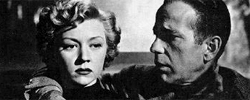
In A Lonely Place
1950 -
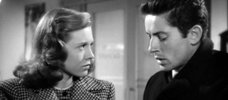
They Live By Night
1948 -
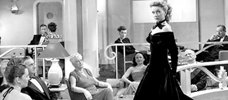
A Woman’s Secret
1949 -
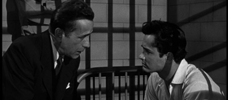
Knock on Any Door
1949 -

Born to Be Bad
1950 -
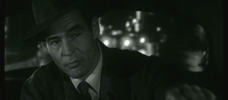
On Dangerous Ground
1952 -
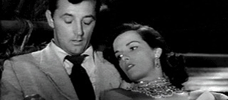
Macao
1952 -
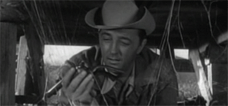
The Lusty Men
1952 -

Johnny Guitar
1954 -
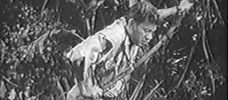
High Green Wall
1954 -
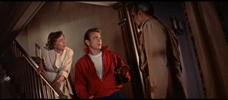
Rebel Without a Cause
1955 -
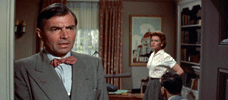
Bigger Than Life
1956 -
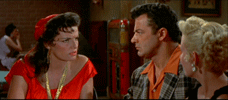
Hot Blood
1956 -

The True Story of Jesse James
1957 -
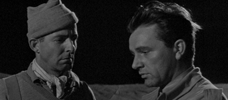
Bitter Victory
1957 -

Party Girl
1958 -

King of Kings
1961 -
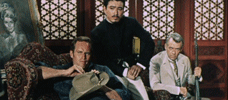
55 Days at Peking
1963 -

The Janitor
1974 -
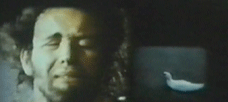
We Can’t Go Home Again
1973-1976 -
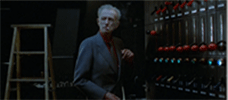
Lightning Over Water
1980
We don’t do comments anymore, but you may contact us here or find us on Twitter or Facebook.



